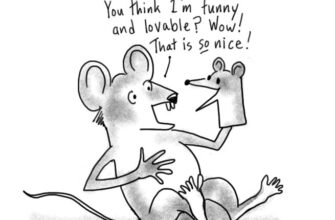The following is from guest writer, Ed Russo.
While at a recent conference, I attended a session preparing retiring police chiefs for careers in the private sector after a life in law enforcement. One hiring agent identified the need to highlight marketable skills in the workforce – number of arrests and being a member of the SWAT team are great law enforcement achievements but may not translate to the corporate environment.
On Super Bowl Sunday we will see an outstanding example of second career success. Cris Collinsworth was a professional football receiver. He, like several of his peers, transitioned from the grid iron to behind the microphone, while also launching successful business endeavors. Collinsworth enjoyed an eight-year NFL career and ranks first on the Cincinnati Bengals’ all-time career receptions list. He was a three-time Pro Bowler and played in Super Bowls XVI and XXIII. Following his last season in 1988, he moved into the announcing booth, where he has become an award-winning sports broadcaster with fifteen Sports Emmy Awards. He currently works as color analyst for NBC Sports’ Sunday Night Football and will be calling his third Super Bowl this Sunday.
Not all great athletes make great media personalities (author’s note: see Emmitt Smith and Joe Montana), just like not all great police chiefs make great CEOs. Knowing this, how can leaders identify and showcase skills needed for changing careers?
The book What Color is Your Parachute? by Richard Bolles is for job-seekers interested in making a career change. According to Bolles, there are three kinds of skills. He categorizes them as verbs, nouns, and adjectives.
Your Skills as Verbs: These are your Transferable (Functional) Skills. They are also called talents, gifts, and ‘natural skills.’ They are the strengths you have, often from birth
Your Skills as Nouns: These are called your Work Subject Skills, or Knowledge Skills. They are subjects you know something about, and love to use in your work. You have learned these subjects, over the years. Through apprenticeships (formal or informal), school, life experience, books, or from a mentor. It doesn’t matter how you learned them; you did. Question is: which ones do you absolutely love to use?
Your Skills as Adjectives: You know, of course, these are your Personal Trait Skills. Traits are the ways you manage yourself, the way you discipline yourself. Hence, they become the style in which go about doing your transferable skills. Often these are hammered out, in the crucible of experience.
Each of us needs to figure out our transferable skills, areas of knowledge, and personal traits we most like to use as we determine where our career is going. Once you do, you’ll be more prepared to find the second, third, or fourth career that best matches your skills and interests. You’ll also be more prepared to build on the areas that are not quite ready for that next career to begin.
So this Sunday, enjoy Cris Collinsworth as he calls the big game. Appreciate his talents while you reflect on yours. Think about the efforts Chris put into transitioning from the field to behind the microphone. You may decide to wait until Monday to update your LinkedIn profile. Or you may decide that being an outstanding chicken wing eater is considered a transferable skill.
________
Ed Russo is the Program Manager for the National Center for Missing and Exploited Children. Mr. Russo works with educators, law enforcement, community leaders, and government officials to implement child safety resources into schools and communities across the country. Through presentations and trainings, Mr. Russo provides participants with information about how safety resources can help prevent the victimization of children. Prior to joining the Center he was a Human Resources Manager in a Florida County Clerk’s Office and has over 18 years of teaching experience. Mr. Russo is a graduate of the University of Rhode Island with a BS degree in Education.
Mr. Russo can be contacted through Twitter and LinkedIn.







